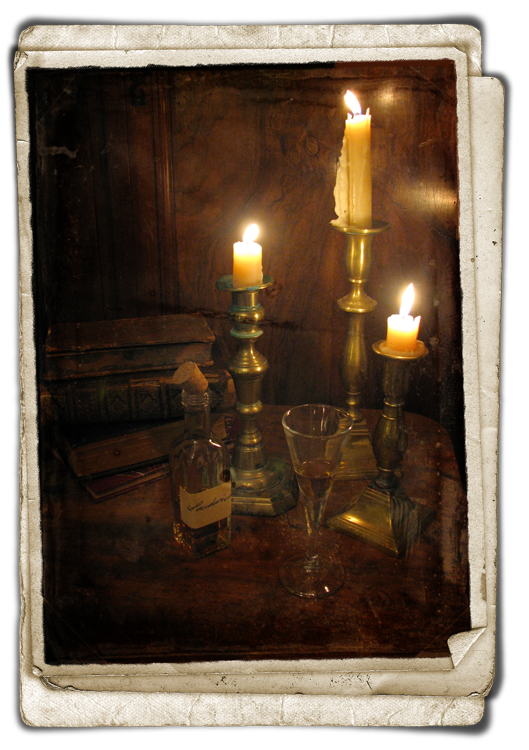It was a perilous trip to the sideboard across Byron’s library; stepping over piles of books, I successfully managed to keep my skirts out of harm’s way from the numerous lit candles in silver holders scattered about the floor. I made a mental note to myself that it would be healthier to wear trousers on successive voyages.
On my way, I happened to notice an unpretentious bottle resting on a small wooden table. Its cork unsuccessfully thrust into the bottleneck, it stood next to a diminutive wine glass that appeared half-full with a golden brown liquor.
The label read Laudanum. Hmmm, the tincture of opium – a potent drink of choice and particularly effective in inducing a soporific retreat for poets seeking visions, inspiration and a really good night’s sleep.
I picked up the tiny glass. In one quick whiff, I smelled brandy and just a trace of cinnamon. Laudanum is notoriously bitter and was often drunk diffused into a flavored liquor to help hide its wretched taste. Treacherous stuff this laudanum, it was considered the “cure all elixir” for a vast array of ailments ranging from flatulence to teething problems in infants. Percy Bysshe Shelley was known to depend on Laudanum’s languid effects and many believed that Lord Byron’s wild mood swings ensued from his use of the drug. I wondered if Mary’s horrifying dreams were summoned by the laudanum as well.
As thought-provoking this small bottle was, I turned around and continued across the room to my original objective, a table laden with midnight mouthfuls for Lord Byron’s guests. I followed my nose and my nose did not disappoint me…
